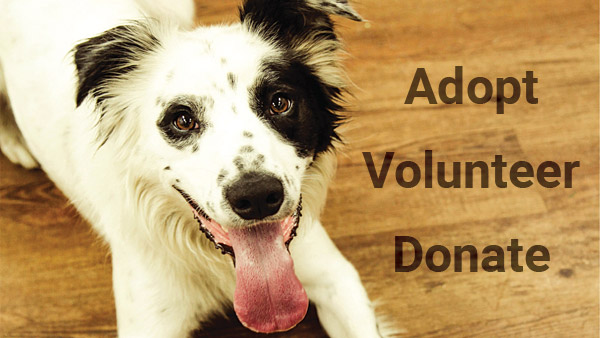What’s Next for Michael Vick
- This topic has 2 replies, 3 voices, and was last updated 14 years, 10 months ago by
Mackenzie’s Admin.
-
AuthorPosts
-
May 22, 2009 at 2:59 pm #419
Mackenzie’s Admin
MemberDear Friends — You may have seen the news that Michael Vick has been released from prison, and that The Humane Society of the United States is going to provide an opportunity for him to get involved in some of our anti-dogfighting outreach programs. Animal advocates might be skeptical, as I was, about whether a man who committed such horrible acts to dogs could do anything positive to help animals. But I want to give him the chance to be part of the solution, rather than part of the problem. If he is serious — and we’ll soon find out — then Vick can help HSUS reach young men in urban communities and tell his story about dogfighting being a dead end. Our on-the-street programs teach at-risk kids that pit bulls are friends, not fighters.
What’s Next for Michael Vick
There was nobody tougher on Michael Vick than The Humane Society of the United States. After sufficient facts came to light about the happenings at Bad Newz Kennels in Surry County, Virginia — the sometime residence of Vick that had morphed into a dogfighting staging ground
— The HSUS urged state and federal authorities to prosecute him and we made a key confidential informant available to federal authorities, which proved vital to the case.We also campaigned, along with others, to urge the Atlanta Falcons to drop Vick, the NFL to suspend him, and his corporate sponsors (such as Nike) to sever their ties. All of that happened, and the fuel that drove all of these actions was the rage and disgust that so many millions of Americans felt once the details came out.
Vick and the other three individuals at the vortex of the criminal network at Bad Newz should have been prosecuted and punished, and they were. They did horrible things.
Long before the Vick case, it was The HSUS, working with our allies in Congress led by Reps. Earl Blumenauer and Elton Gallegly, that drove the enactment of strong federal laws to crack down on animal fighting — banning any interstate or foreign transport of animals for fighting and upgrading penalties with amendments to the Animal Welfare Act in 2002. We worked on a further upgrade of the law in 2007 to make it a federal felony to move dogs across state lines. For years, we had been working with the law enforcement arm of the U.S. Department of Agriculture — the Office of Inspector General — sharing intelligence on animal fighting crimes, emphasizing the corrosive impact of animal fighting on our communities, and urging them to be more aggressive in investigating cases. When the Vick case came to light, these federal authorities grabbed the torch, especially after they saw the Surry County prosecutor failing to take action. For their leadership, we honored federal prosecutors and investigators in 2007 at our annual Law Enforcement Awards ceremony.
For The HSUS, dogfighting had long been a priority concern, and we knew it was an epidemic problem, especially in urban communities. But most people considered it a relic issue — a settled matter and a rare occurrence. The Vick case synced public sentiment with the scale of the problem, and dogfighting rightly reoccupied a priority slot on the animal protection agenda in America.
The HSUS tried to channel this energy in the aftermath of the Vick case, and we helped to pass a remarkable 21 new laws against animal fighting, including a third upgrade of the federal law. Thanks to our supporters, we amped up our rewards program and worked with state Attorneys General and other law enforcement agencies to advertise the program. We set up tip lines so we could gather other information. We established community-based programs to do outreach to young people at risk of getting enmeshed in the world of dogfighting. We expanded our training of law enforcement agents in investigation and prosecution of animal fighting crimes.
What are your thoughts on this? Please let us know!
Last year, we were involved in more than 250 busts of animal fighting operations, both dogfighting and cockfighting.
So with this record of action, I think I’d be the least likely guy to end up sitting at a small table and talking calmly with Michael Vick about his interest in working with us.
But when you step back and ponder it, we are actually the most logical place for him to go. We have the most developed programs on the issue, so if he’s sincere about making a difference, there’s no better place to land.
I sat with the man, but I still don’t know what’s in his heart. He told me he did terrible things to dogs. He said he grew up with dogfighting as a boy, and that he never sufficiently questioned it as he grew into manhood.
He said this experience has been a trauma and he’s changed forever. And he said he wants to show the American public that he is committed to helping combat this problem. He asked for an opportunity to help. I want to give him that opportunity. If he makes the most of it, and demonstrates a sincere, long-term commitment to the task, then it may prove to be a tipping point in our campaign to eradicate dogfighting. If he demonstrates a fleeting or superficial interest, then it will be his own failing, not ours. Our campaign will march forward regardless. It’s up to him, and we at The HSUS reserve judgment until he demonstrates that he’s part of the solution rather than a further part of the problem.
Maybe if there had been an intervention program in Newport News 15 years ago, a young Michael Vick would have grown to love and respect pit bulls, and he would not have done these terrible things to dogs. For me, it’s not about Michael Vick and providing endless punitive treatment. It’s about stopping other young people from going down the road Vick took. It’s about having kids today put down their break sticks and destroy their pit bull treadmills.
We’ve done a lot with the law, and with law enforcement, and that work continues. But the most urgent challenge we face is interrupting the cycle of violence that leads kids down this dead end path, one that’s paved with animal misery. They need to see that dogfighters never succeed. They are criminals, and there’s no good outcome. Michael Vick’s story is a narrative they need to hear.
May 31, 2009 at 1:54 pm #704Mackenzie’s Admin
MemberThe Humane Society of the United States wanted all the Michael Vick dogs killed. As I WAS a member of The Partners Circle program I emailed the society to find out why the organization felt that way. I was told that they felt the dogs were too damaged to be rehabilitated. HOWEVER, Best Friends & a few other rescue groups did not feel that way. The stories was of 4 of those dogs were recently rebroadcast on The National Geographic Channel on "Dog Town". One of the dogs is now a therapy dog & one of the hospitals it visits has a cancer ward. Another rescue group brought a Vick dog on The Rachel Ray Show. Best Friends does not give up on dogs just as Mackenzie’s does NOT give up on dogs. Go to the Best Friends website to get updates on the Vick dogs.
CarolJune 3, 2009 at 8:07 pm #705Mackenzie’s Admin
MemberSeven things about the Humane Society of America that you probably didn’t know:
1) The Humane Society of the United States (HSUS) is a “humane society” in name only, since it doesn’t operate a single pet shelter or pet adoption facility anywhere in the United States. During 2007, HSUS contributed only 3.64 percent of its budget to organizations that operate hands-on dog and cat shelters. In reality, HSUS is a wealthy animal-rights lobbying organization (the largest and richest on earth) that agitates for the same goals as PETA and other radical groups.
2) Beginning on the day of NFL quarterback Michael Vick’s 2007 dogfighting indictment, HSUS raised money online with the false promise that it would “care for the dogs seized in the Michael Vick case.” The New York Times later reported that HSUS wasn’t caring for Vick’s dogs at all. And HSUS president Wayne Pacelle told the Times that his group recommended that government officials “put down” (that is, kill) the dogs rather than adopt them out to suitable homes. HSUS later quietly altered its Internet fundraising pitch.
3) HSUS’s senior management includes a former spokesman for the Animal Liberation Front (ALF), a criminal group designated as “terrorists” by the FBI. HSUS president Wayne Pacelle hired John “J.P.” Goodwin in 1997, the same year Goodwin described himself as “spokesperson for the ALF” while he fielded media calls in the wake of an ALF arson attack at a California veal processing plant. In 1997, when asked by reporters for a reaction to an ALF arson fire at a farmer’s feed co-op in Utah (which nearly killed a family sleeping on the premises), Goodwin replied, “We’re ecstatic.” That same year, Goodwin was arrested at a UC Davis protest celebrating the 10-year anniversary of an ALF arson at the university that caused $5 million in damage. And in 1998, Goodwin described himself publicly as a “former member of ALF.”
4) According to a 2008 Los Angeles Times investigation, less than 12 percent of money raised for HSUS by California telemarketers actually ends up in HSUS’s bank account. The rest is kept by professional fundraisers. And if you exclude two campaigns run for HSUS by the “Build-a-Bear Workshop” retail chain, which consisted of the sale of surplus stuffed animals (not really “fundraising”), HSUS’s yield number shrinks to just 3 percent. Sadly, this appears typical. In 2004, HSUS ran a telemarketing campaign in Connecticut with fundraisers who promised to return a minimum of zero percent of the proceeds. The campaign raised over $1.4 million. Not only did absolutely none of that money go to HSUS, but the group paid $175,000 for the telemarketing work.
5) Research shows that HSUS’s heavily promoted U.S. “boycott” of Canadian seafood—announced in 2005 as a protest against Canada’s annual seal hunt—is a phony exercise in media manipulation. A 2006 investigation found that 78 percent of the restaurants and seafood distributors described by HSUS as “boycotters” weren’t participating at all. Nearly two-thirds of them told surveyors they were completely unaware HSUS was using their names in connection with an international boycott campaign. Canada’s federal government is on record about this deception, saying: “Some animal rights groups have been misleading the public for years … it’s no surprise at all that the richest of them would mislead the public with a phony seafood boycott.”
6) HSUS raised a reported $34 million in the wake of Hurricane Katrina, supposedly to help reunite lost pets with their owners. But comparatively little of that money was spent for its intended purpose. Louisiana’s Attorney General shuttered his 18-month-long investigation into where most of these millions went, shortly after HSUS announced its plan to contribute $600,000 toward the construction of an animal shelter on the grounds of a state prison. Public disclosures of the disposition of the $34 million in Katrina-related donations add up to less than $7 million.
7) After gathering undercover video footage of improper animal handling at a Chino, CA slaughterhouse during November of 2007, HSUS sat on its video evidence for three months, even refusing to share it with the U.S. Department of Agriculture. HSUS’s Dr. Michael Greger testified before Congress that the San Bernardino County (CA) District Attorney’s office asked the group “to hold on to the information while they completed their investigation.” But the District Attorney’s office quickly denied that account, even declaring that HSUS refused to make its undercover spy available to investigators if the USDA were present at those meetings. Ultimately, HSUS chose to release its video footage at a more politically opportune time, as it prepared to launch a livestock-related ballot campaign in California. Meanwhile, meat from the slaughterhouse continued to flow into the U.S. food supply for months.
*Source: The Center for Consumer Freedom
Please remember that the Humane Society of America is NOT affiliated in any way with your local Humane Society.
-
AuthorPosts
- You must be logged in to reply to this topic.
















































